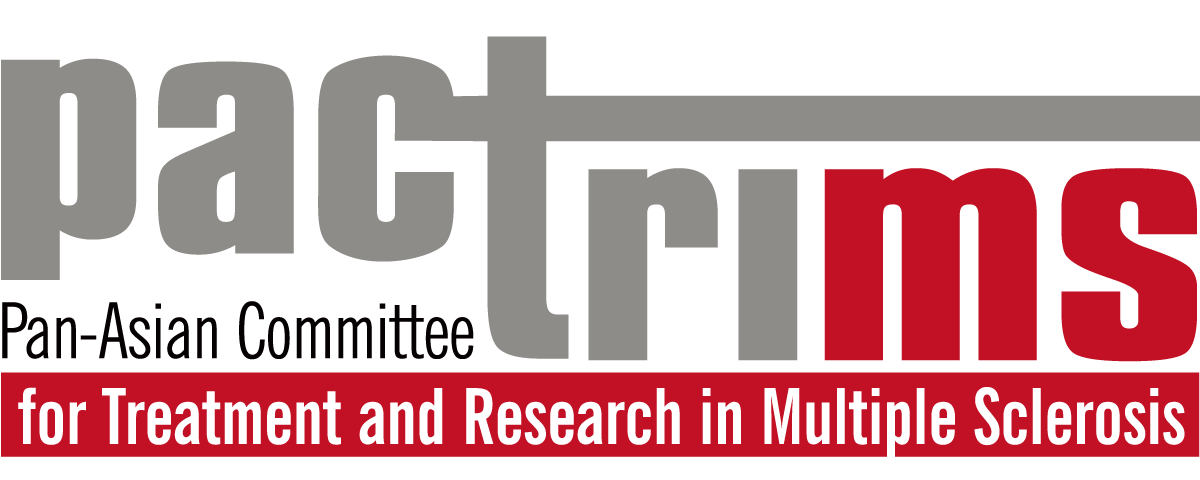Cancelling your registration will remove your access to the event. If you proceed, you will no longer be able to participate or access event-related materials.
Deleting your account will remove your access to the event.

Countdown to the Virtual Event
Welcome to the 17th Annual PACTRIMS Congress
We are delighted to announce that the 17th Annual PACTRIMS Congress will be held from 13 to 15 November 2025 in the vibrant city of Osaka, Japan. Following our successful gathering in Bangkok last year, we look forward to reconvening in Osaka—a city renowned for its rich history, dynamic culture, and exceptional hospitality.
This year's congress will take place at The Ritz-Carlton, Osaka, an elegant venue situated in the heart of the Umeda district. Known for its blend of 18th-century European charm and modern luxury, the hotel offers state-of-the-art conference facilities, including the Grand Ballroom, which can accommodate up to 1,500 guests. Special guest rates have been reserved specially for our delegates so don’t forget to book your hotel with us.
Osaka, often referred to as "Japan's kitchen," is celebrated for its culinary delights, from street food favorites like takoyaki and okonomiyaki to Michelin-starred restaurants. Beyond its gastronomic offerings, the city boasts a wealth of cultural landmarks, including the historic Osaka Castle and the bustling Dōtonbori district.
In 2025, Osaka will also host the World Expo, highlighting its commitment to innovation and global collaboration. This international event underscores the city's role as a hub for forward-thinking ideas and cultural exchange.
We invite you to join us in Osaka for an engaging and enriching congress experience.
Dear Friends and Colleagues,
On behalf of the Local Organizing Committee, it is my great pleasure to invite you to the 17th Annual Congress of the Pan-Asian Committee for Treatment and Research in Multiple Sclerosis (PACTRIMS), taking place 13–15 November 2025 at The Ritz-Carlton Osaka.
Following the successful gathering of our community at the 16th Congress in Bangkok, where we strengthened regional and global collaborations, we are excited to bring this year’s meeting to the dynamic city of Osaka, known for its rich cultural heritage, innovation, and warm hospitality. PACTRIMS will return to Japan for the second time following the 6th Annual Congress of PACTRIMS which was held in Kyoto in November 2013 and hosted by Prof. Takahiko Saida, the first President of PACTRIMS.
This year’s congress will center around six key scientific themes that reflect both global advances and region-specific challenges in the field of MS and related disorders:
These themes aim to foster deep scientific exchange while addressing the evolving landscape of neuroimmunology in Asia. The program will feature plenary lectures, symposia, interactive sessions, and poster presentations, as well as focused opportunities for early-career professionals to engage in mentorship and career development.
Osaka offers a unique setting where tradition and progress coexist—from the historical beauty of Osaka Castle to the modern vibrancy of the Dōtonbori district. We hope this congress not only enriches your professional knowledge but also provides time for cultural discovery and meaningful connections.
As Professor of Multiple Sclerosis Therapeutics at Fukushima Medical University and Director of the MS & NMOSD Centre, STRINS, it is a true honour to serve as the Local Organizing Chairperson. I look forward to welcoming you to Japan and to an exciting, inspiring, and forward-looking PACTRIMS 2025.
Yōkoso! Welcome to Osaka, and welcome to PACTRIMS 2025.
Warmest regards,
Kazuo Fujihara, MD, PhD
Local Organizing Chairperson, 17th PACTRIMS Congress
Professor, Department of Multiple Sclerosis Therapeutics, Fukushima Medical University
Director, Southern TOHOKU Research Institute for Neuroscience (STRINS), Japan
President Emeritus, PACTRIMS Executive Committee
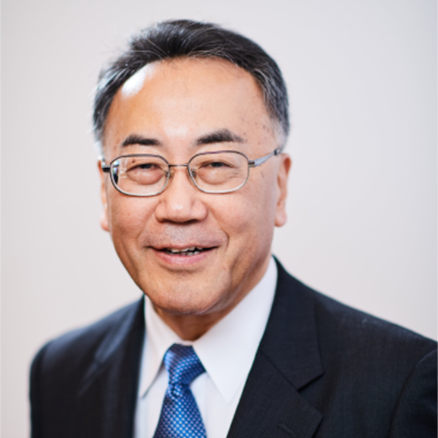
|
SPECIALIST/PHYSICIAN/RESEARCHER/ INDUSTRY/ CORPORATE STAFF |
Early Bird Rate (USD) Now till 5 Sep 2025 |
Regular Rate (USD) 6 Sep to 30 Sep 2025 |
On-site Rate (USD) 13 Nov to 15 Nov 2025 |
|---|---|---|---|
| PACTRIMS CONGRESS, 13 Nov to 15 Nov | 550 | 650 | 750 |
|
POST GRADUATE STUDENT/TRANING NEUROLOGIST/NURSE/ALLIED HEALTH PROFESSIONAL/PHARMACIST* |
Early Bird Rate (USD) Now till 5 Sep 2025 |
Regular Rate (USD) 6 Sep to 30 Sep 2025 |
On-site Rate (USD) 13 Nov to 15 Nov 2025 |
|---|---|---|---|
| PACTRIMS CONGRESS, 13 Nov to 15 Nov | 300 | 300 | 400 |
PACTRIMS has negotiated for special accommodation rates for our delegates at the Ritz Carlton Osaka. As rooms are on a first come, first serve, we urge you to book early to avoid disappointment. You may book the accommodation by clicking on the button below.
In an effort to forge a diversified MS community within the Asia Pacific Region, the PACTRIMS Travel Grant contributes funds to qualifying individuals’ travel expenses for Congress participation. This is done to encourage participation from healthcare professionals in the Asia Pacific Region, increasing the prominence and importance of research and interest in Multiple Sclerosis (MS) in the Region and encourage mutually beneficial interaction among MS healthcare professionals.
A limited number of 25 travel grants each USD1,000, will be made available to young scientists aged 35 or younger (born on or after 1 January 1990) and whose abstracts have been accepted for oral or poster presentations.
1. Eligibility
2. Instructions for submission
Qualifying individuals must fill out an APPLICATION FORM; download ONLINE or from the registration desk during the Congress from 13-15 November 2024.
The following items are important and compulsory in your submission:
3. Payment
4. Submission Deadline
Completed applications and accompanying documents must be received by the Secretariat on or before the last day of the Congress, 15 November 2025 by 10.00am Japan local time. Late submissions will not be entertained and please adhere strictly to this deadline.
LOW-INCOME ECONOMIES
LOWER-MIDDLE INCOME ECONOMIES
 November 13, 2025 13:00
November 13, 2025 13:00 November 13, 2025 13:00
November 13, 2025 13:00 Kazuo Fujihara (Japan)
 November 13, 2025 13:05
November 13, 2025 13:05 Ho Jin Kim (Korea)
 November 13, 2025 13:10
November 13, 2025 13:10 November 13, 2025 13:15
November 13, 2025 13:15 Sungmin Kim (Korea)
Tianrong Yeo (Singapore)
 November 13, 2025 13:15
November 13, 2025 13:15 Jens Kuhle (Switzerland)
 November 13, 2025 14:10
November 13, 2025 14:10 Su Hyun Kim (Korea)
 November 13, 2025 14:35
November 13, 2025 14:35 Wei Qiu (China)
 November 13, 2025 15:00
November 13, 2025 15:00 November 13, 2025 15:15
November 13, 2025 15:15 Ho Jin Kim (Korea)
Noriko Isobe
 November 13, 2025 15:45
November 13, 2025 15:45 November 13, 2025 17:00
November 13, 2025 17:00 Riwanti Estiasari (Indonesia)
Ichiro Nakashima (Japan)
 November 13, 2025 19:00
November 13, 2025 19:00 November 14, 2025 08:00
November 14, 2025 08:00 November 14, 2025 08:00
November 14, 2025 08:00 November 14, 2025 09:15
November 14, 2025 09:15 Simon Broadley (Australia)
Wei Qiu (China)
 November 14, 2025 09:15
November 14, 2025 09:15 Chao Zhu (Australia)
 November 14, 2025 09:40
November 14, 2025 09:40 November 14, 2025 10:05
November 14, 2025 10:05 November 14, 2025 10:30
November 14, 2025 10:30 November 14, 2025 10:45
November 14, 2025 10:45 November 14, 2025 11:15
November 14, 2025 11:15 Jennifer Massey (Australia)
Sruthi Sivaraman Nair (India)
 November 14, 2025 12:30
November 14, 2025 12:30 November 14, 2025 13:45
November 14, 2025 13:45 Lekha Pandit (India)
Jin Nakahara (Japan)
 November 14, 2025 13:45
November 14, 2025 13:45 Mr. Kagawa (Japan, Chugai)
 November 14, 2025 14:10
November 14, 2025 14:10 Shanthi Viswanathan (Malaysia)
 November 14, 2025 14:35
November 14, 2025 14:35 Janis Sn Tye (Singapore)
 November 14, 2025 15:00
November 14, 2025 15:00 November 14, 2025 13:45
November 14, 2025 13:45 Jyh Yung Hor (Malaysia)
Todd Hardy (Australia)
 November 14, 2025 13:45
November 14, 2025 13:45 Jennifer Massey (Australia)
 November 14, 2025 14:10
November 14, 2025 14:10 Ichiro Nakashima (Japan)
 November 14, 2025 14:35
November 14, 2025 14:35 Isabel Leite (UK)
 November 14, 2025 15:00
November 14, 2025 15:00 November 14, 2025 15:15
November 14, 2025 15:15 Noriko Isobe
Allan Kermode (Australia)
 November 14, 2025 15:45
November 14, 2025 15:45 Yaou Liu (China)
Alexander Lau (Hong Kong)
 November 14, 2025 15:45
November 14, 2025 15:45 Sasitorn Siritho (Thailand)
 November 14, 2025 16:00
November 14, 2025 16:00 Koji Shinoda (Japan)
 November 14, 2025 16:30
November 14, 2025 16:30 Lekha Pandit (India)
 November 14, 2025 16:30
November 14, 2025 16:30 Ziyan Shi (China)
 November 14, 2025 16:45
November 14, 2025 16:45 November 14, 2025 15:45
November 14, 2025 15:45 Helmut Butzkueven (Australia)
Su Hyun Kim (Korea)
 November 14, 2025 15:45
November 14, 2025 15:45 Mastura Monif (Australia)
 November 14, 2025 16:05
November 14, 2025 16:05 Ro Long-Sun (Taiwan)
 November 14, 2025 16:25
November 14, 2025 16:25 Fabienne Brilot (Australia)
 November 14, 2025 16:45
November 14, 2025 16:45 November 14, 2025 17:20
November 14, 2025 17:203mins presentation/2mins
Q&A x ~10 booths.
Awardees will be decided after poster presentation
 November 13, 2025 09:00
November 13, 2025 09:00 November 15, 2025 09:00
November 15, 2025 09:00 November 15, 2025 10:00
November 15, 2025 10:00 November 15, 2025 10:20
November 15, 2025 10:20 Su Jen Jen (Taiwan)
Metha Apiwattanakul (Thailand)
 November 15, 2025 10:20
November 15, 2025 10:20 Yi Chao Foong (Australia)
 November 15, 2025 10:45
November 15, 2025 10:45 Ki Hoon Kim (Korea)
 November 15, 2025 11:10
November 15, 2025 11:10 November 15, 2025 11:35
November 15, 2025 11:35 November 15, 2025 12:00
November 15, 2025 12:00 November 15, 2025 12:00
November 15, 2025 12:00 Noriko Isobe
 November 15, 2025 12:15
November 15, 2025 12:15 Allan Kermode (Australia)

Associate Professor of Neurology
at Humanitas University in Milan
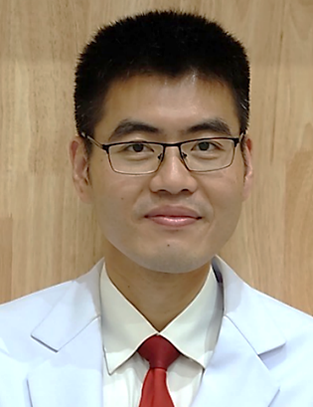
Head of the Neuroimmunology Unit, Department of Neurology, Neurological Institute of Thailand
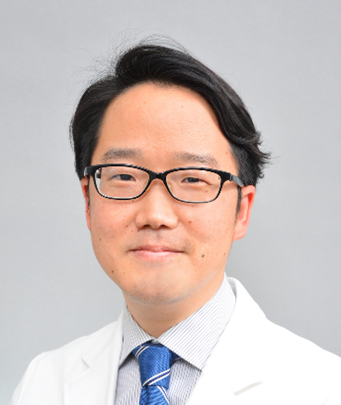
Project Associate Professor of Neurology
at Kobe University Hospital
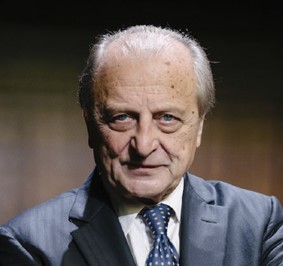
Honorary Professor Vita Salute San Raffaele University (Milan)
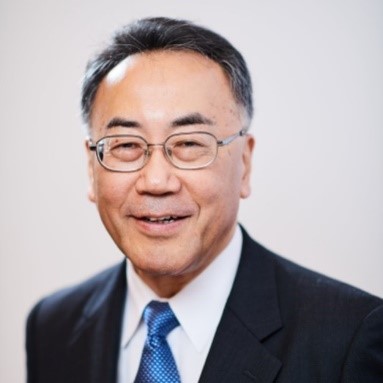
Professor, Department of Multiple Sclerosis Therapeutics, Fukushima Medical University School of Medicine, Fukushima, Japan
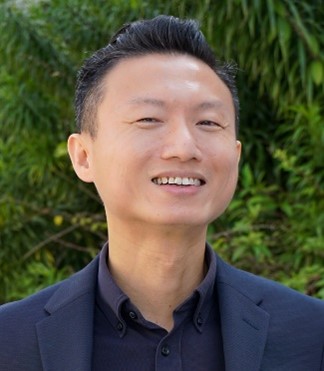
Assistant Professor of Biomedical Informatics, Lee Kong Chian School of Medicine, School of Biological Sciences
.png)
Professor of Neurology
Heinrich Heine University Düsseldorf, Germany
Consultant Neurologist, GOSH
Hon Ass Professor Institute of Child Health, University College London

Neurologist, Assistant Professor,
National Cancer Center
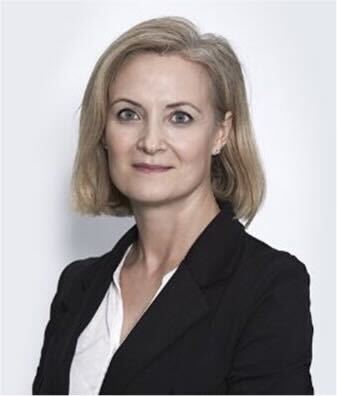
Associate Professor of Neurology
University Vita-Salute San Raffaele, Milan
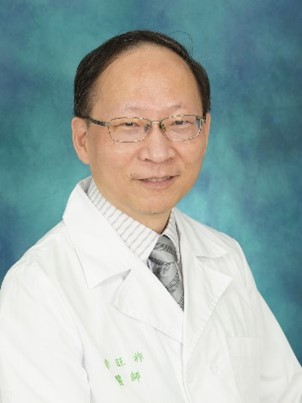
Superintendent,
National Taiwan University Children’s Hospital, Taipei, Taiwan
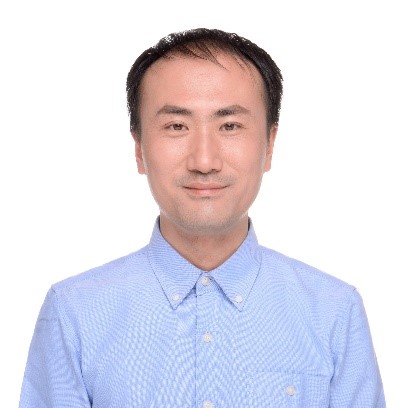
Director of Department of Radiology,
Beijing Tiantan Hospital, Capital Medical University
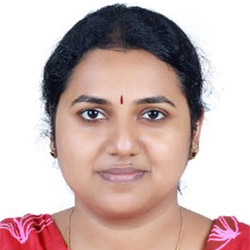
Additional Professor, Department of Neurology,
Sree Chitra Tirunal Institute for Medical Sciences and Technology
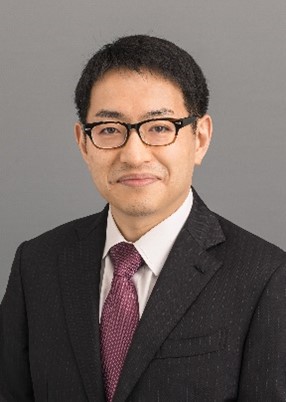
Professor and Chair of the Department of Neurology,
Keio University School of Medicine
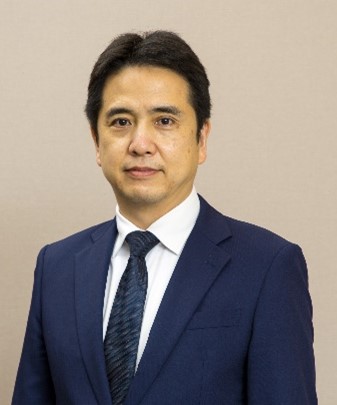
Professor of Neurology at Tohoku Medical and Pharmaceutical University

Professor of Neurology
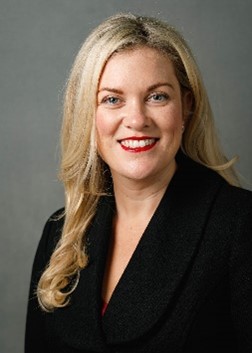
Neurology and Stroke Nurse Practitioner, Royal Brisbane and Women’s Hospital
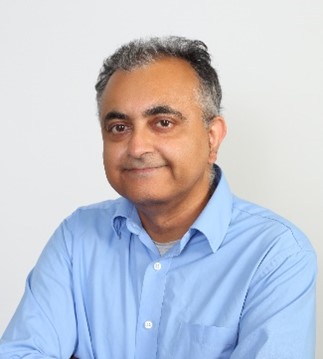
Consultant Neurologist St George’s University Hospitals NHS Foundation Trust
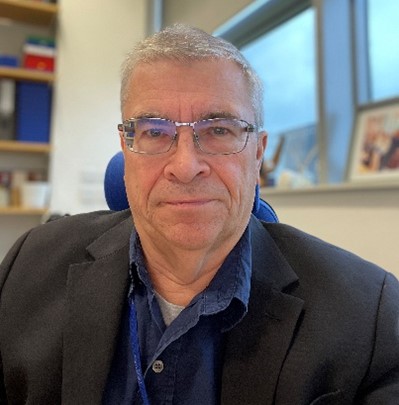
Professor of Cellular Neurobiology, Faculty of Medicine, Division of Brain Sciences,
Imperial College London, UK
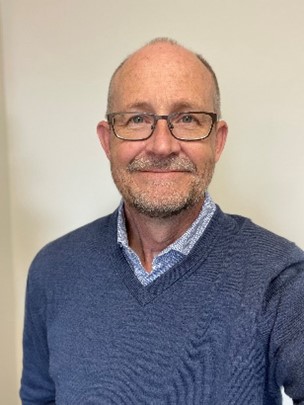
Head of Department of Immunology and Cofounder of the Neuroimmunology Service at Concord Hospital in Sydney

Senior Consultant, Department of Neuro Ophthalmology, Singapore National Eye Centre(SNEC)
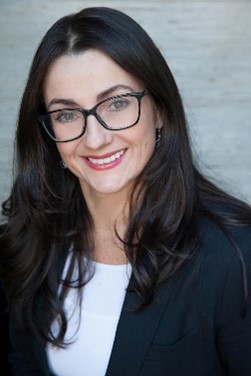
Director of the Multiple Sclerosis and Neuroimmunology Unit and Neuro-ophthalmology Service, Alfred Health, Melbourne
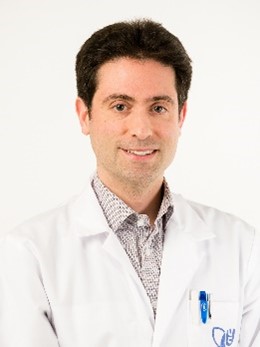
Associate Chief of Neurology Department, Cliniques Universitaires Saint-Luc,
UCLouvain University, Brussels, Belgium

MS Australia Fellow, Senior Research Fellow, University of Sydney
You can still visit the wellbeing booth in the virtual exhibition to view some fantastic video content;
With this short on-demand video tutorial, find out how you can dress up your typical supermarket flowers using foliage from your garden!
A step by step tutorial of how to bake a Manchester Tart, with 2019 semi-finalist of the Great British Bake Off and finalist of the Great Christmas Bake Off 2020, Rosie Brandreth-Poynter.
9 different yoga sessions brought to you by Olivia Haskey from "Yogacrohnie". Expect energising morning sessions, desk Yoga, meditation and breathwork classes, and calm resting evening sessions.
T +44 (0)1452 726704
E exhibition@bsava.com
T +44 (0)1452 726720
E congress@bsava.com
T +44 (0)1452 726720
E congress@bsava.com
Kazuo Fujihara, M.D. is Professor, Department of Multiple Sclerosis Therapeutics, Fukushima Medical University School of Medicine, and Director, Multiple Sclerosis & Neuromyelitis Optica Center, Southern TOHOKU Research Institute for Neuroscience (STRINS), Koriyama, Japan. Dr. Fujihara is a neurologist and has mainly worked in the field of multiple sclerosis (MS), neuromyelitis optica spectrum disorders (NMOSD), MOG antibody-associated disease (MOGAD) and related neuroimmunological disorders. He is a member of the International Panel on Diagnosis of MS (the 2010 and 2017 revisions to the McDonald Criteria), the International Panel on NMO Diagnosis (the 2015 International Consensus Diagnostic Criteria and the 2025 revisions), the International Panel on Diagnosis of MOGAD (2020~2023) and the International Advisory Committee on Clinical Trials in MS (2022~2025). Since 2013, he has served on the Executive Committee, International Medical and Scientific Board of The Multiple Sclerosis International Federation (MSIF), and the Board of European Charcot Foundation (ECF). He is an inaugural member and President (2018~) of Pan-Asian Committee for Treatment and Research in Multiple Sclerosis (PACTRIMS), Immediate Past President of Japanese Society for Neuroimmunology (JSNI), and Honorary Member of The Association of Sri Lankan Neurologists, Indian Academy of Neurology, Hong Kong Society of Multiple Sclerosis, and Brazilian Committee for Treatment and Research in Multiple Sclerosis (BCTRIMS).
Abstract of Lecture:
Multiple sclerosis (MS) may cause a variety of symptoms and functional disabilities, such as weakness, spasticity, ataxia, tremor, bladder and bowel disturbances, sexual dysfunction, fatigue, cognitive and affective disorders, and they impair activity of daily living and reduce quality of life more severely in the progressive phase of the disease. Since disease modifying therapies of progressive MS are still limited in number and their efficacy is insufficient, symptomatic therapy as well as rehabilitation remains important in the management of the patients. In this presentation, an overview of current symptomatic therapies in progressive MS will be provided and the challenges will be discussed.
Professor Hartung is Professor of Neurology at Heinrich-Heine-University Düsseldorf; Honorary Professor, Brain and Mind Center, University of Sydney, Australia, Visiting Professor at Medical University Vienna, Austria and Palacky University Olomouc, Czech Republic. He holds an honorary doctorate from Palacky University Olomouc, Czech Republic.
Professor Hartung is a member of the German Neurological Society DGN, The Austrian Society of Neurology ÖGN, a Fellow of the American Academy of Neurology, Corresponding Fellow of the American Neurological Association, Fellow and General Assembly member of the European Academy of Neurology, Honorary Member of the All Russian Neurological Society, Honorary Member of ECTRIMS, Honorary Member of the French Neurological Society, Honorary Member of the Polish Neurological Society, Member of the Association of British Neurologists and a Fellow of the Royal College of Physicians (London).
Abstract of Lecture:
While a broad range of disease modifying treatments are available for relapsing forms of MS, there is a paucity of drugs effective in progressive MS. Only 2 drugs have been approved so far: Siponimod for active SPMS and ocrelizumab for PPMS. Their effect size is moderate and hence there is a pressing need to develop new treatments. New hope has been generated by the outcomes of the phase 3 trial of the BTK inhibitor tolebrutinib.
I will discuss various strategies based on current concepts of the pathomechanisms underlying progression in MS.
I will also discuss the recent attempts to redefine progression (RAW vs PIRA) and how that may impact our treatment algorithms.
In practical terms early detection of progression along the course of MS is of paramount importance. Management requires an integrated multidisciplinary approach with a combination of DMTs, symptomatic treatments, physiotherapy, and rehabilitation.
Dr. Martina Absinta is a neurologist with an international PhD in Molecular Medicine. She is currently leading the Translational Neuropathology Unit at IRCCS San Raffaele Scientific Institute in Milan. She dedicated her work to ultra-high field 7T MRI–human neuropathological correlations in multiple sclerosis, and related identification of novel imaging biomarkers of chronic inflammation (with special focus on microglia-mediated and leptomeningeal inflammation). In the last few years, her work highlighted the clinical relevance of chronic inflammation and chronic active lesions in driving progression in multiple sclerosis and prompted for the planning of novel-designed MRI-based clinical trials aimed at treating such perilesional chronic inflammation. To better understand the immunological mechanism operating at the chronic active lesion edge and new therapeutic targets, she recently built a cellular blueprint of multiple sclerosis lesions using single-nucleus RNA sequencing and identified C1q as critical mediator of microglia activation. Her scientific work has been published in high impact scientific journals, including Nature, Nature Reviews Neurology, JCI, eLife, and JAMA Neurology.
Abstract of Lecture 1:
The pathological mechanisms driving clinical progression in multiple sclerosis (MS) remain incompletely understood and are therefore not fully addressed by current therapies. Recent studies have emphasized the significance of compartmentalized smoldering inflammation, particularly in chronic active or smoldering lesions, as a key factor in persistent clinical progression.
Given that MRI-neuropathological correlations are essential for advancing our understanding of this disease and developing personalized medicine approaches, this presentation will explore imaging techniques and provide a detailed correlative analysis of the neuropathology of MS lesion evolution, including chronic active lesions, utilizing multiplex immunostaining, single-cell analysis, and spatial transcriptomics. Special emphasis will be placed on the different microglia phenotypes present within chronic active/smoldering lesions. Additionally, recent advancements in imaging techniques for repair and remyelination will also be discussed.
Abstract of Lecture 2:
In this talk, we will explore the latest advancements in biomarkers for multiple sclerosis (MS), focusing on both imaging and molecular markers. As our understanding of MS deepens, the role of biomarkers in diagnosing, monitoring, and predicting disease progression has become increasingly vital. We will delve into innovative imaging techniques that enhance the detection and characterization of MS lesions, providing more precise insights into disease activity and progression. Special emphasis will be placed on the detection of chronic active/smoldering lesions, which are now recognized as key contributors to disease progression in MS, using both MRI and/or PET approaches.
A significant portion of the discussion will center on fluid biomarkers, especially neurofilament light chain (NfL) and glial fibrillary acidic protein (GFAP) levels, which have emerged as promising biomarkers for MS. Overall, this presentation will underscore the importance of combining imaging and molecular biomarkers to advance our understanding of MS and improve patient care. By leveraging these tools, we can move closer to a future where MS management is more predictive, personalized, and effective.
Dr. Norio Chihara is a Project Associate Professor of Neurology at Kobe University Hospital. He received his medical degree from Kobe University and completed a clinical fellowship in neurology at Toranomon Hospital and National Center Hospital, NCNP. He joined Prof. Yamamura's laboratory from 2009 to 2012, where he found plasmablasts as autoantibody-producing B cells in patients with neuromyelitis optica spectrum disorder (NMOSD). After receiving his Ph.D. from Kobe University, he completed his postdoctoral training at Brigham and Women's Hospital, Harvard Medical School, under the mentorship of Prof. Vijay Kuchroo from 2013 to 2016.
He is currently utilizing a systems biology approach to understand the co-inhibitory molecular circuits that are dysregulated in multiple sclerosis (MS) and other neurological diseases. He has over 100 publications. The main focus of his research is to elucidate the immune pathogenesis of MS, NMOSD and neurodegenerative diseases in order to develop a novel therapeutic strategy for these neurological disorders.
Abstract of Lecture:
Neuromyelitis optica spectrum disorder (NMOSD) is a relapsing inflammatory disease that often mimics multiple sclerosis (MS) due to its clinical presentation of optic neuritis and myelitis. Two decades of studies have shown that autoantibodies to the water channel protein aquaporin 4 (AQP4) on astrocytes are detected in a core group of patients. These autoantibodies are central to the inflammatory pathology of the disease, which involves proinflammatory cytokines, chemokines, and various immune cells. Anti-AQP4 antibody-positive NMOSD is fundamentally different from MS, particularly in its responsiveness to therapy and the neuropathology associated with astrocyte destruction. Advances in understanding the immunological mechanisms of NMOSD have led to the identification of therapeutic targets, such as the complement pathway and interleukin-6 (IL-6) receptor signaling. Randomized controlled trials have demonstrated the exceptional efficacy of therapies targeting complement C5, IL-6 receptors, and B cells in preventing relapses in patients with anti-AQP4 antibodies, although no such effects were found in anti-AQP4 antibody negative patients. These results suggest that anti-AQP4 antibody is a biomarker that predicts the efficacy of therapies and may guide the development of "personalized medicine" approaches tailored to individual patients.
Dr. Richard Reynolds’ research focuses on the pathogenetic mechanisms underlying grey matter pathology in multiple sclerosis, in particular the link between inflammation and neurodegeneration. Our laboratories house the UK MS Tissue Bank that represents a worldwide resource for MS research. Our studies also use novel animal models of cortical pathology, employing the chronic expression of cytokines and chemokines in the meningeal space, alongside a detailed molecular analysis of the human tissues. We recently described a role for TNF signalling in activating necroptosis in cortical neurons in MS and have extended this to the hippocampus in Alzheimer brains.
Abstract of Lecture 1:
Neuropathological studies of cortical pathology in progressive MS have identified a relationship between leptomeningeal immune cell infiltrates in the deeper cortical sulci and subpial demyelination of the grey matter. An increasing degree and lymphoid-like organisation of meningeal infiltrates and extent of cortical demyelination are linked with increasing disease severity. Increased meningeal inflammation also correlates with increased loss of cortical neurons, independent of the presence of subpial demyelination. Analysis of diagnostic and post-mortem CSF demonstrated a link between a proinflammatory CSF milieu (levels of TNF, IFN-gamma and CXCL13), and the presence of meningeal inflammation and cortical demyelination. To test the hypothesis that proinflammatory molecules diffusing from the meninges into the underlying cortex can produce MS-like pathology, we induced chronic meningeal expression of combinations of TNF, LT-alpha and IFN-gamma in the rat subarachnoid space. This gave rise to rapid immune cell infiltration into the meninges and the development of lymphoid-like tissues, followed by accumulating sub-pial demyelination and neuronal loss. Subpial demyelination was dependent on the presence of a humoral anti-MOG immune response, whereas neurodegeneration was independent, as in the MS brain. These animal studies have demonstrated that chronic pro-inflammatory cytokine expression in the meninges alone can give rise to underlying cortical pathology.
Abstract of Lecture 2:
The pathology of progressive MS is classically characterised by multiple foci of perivenular inflammation in the white matter (WM) accompanied by primary demyelination. Axon transection can be observed in active inflammatory lesions, but there is relative sparing of axons in the majority. Demyelination is also present in the cerebral cortical and deep grey matter (GM), often more extensive than in the WM. Lymphocytes are only present in small numbers in progressive MS brains, predominantly restricted to the WM perivascular spaces. T and B-cells are rare in the GM parenchyma and perivascular spaces, although substantial numbers are found in the overlying leptomeninges of a significant proportion of cases, often in tertiary lymphoid-like aggregates. Many diffuse pathological changes are present in the normal appearing WM and GM, including axon damage/loss, microglial activation, node of Ranvier abnormalities and neuronal and synaptic loss. Quantitative analysis of pathological features and clinical outcomes in a large post-mortem cohort indicates that, whereas the degree of demyelination correlates only weakly with measures of progression, neuronal loss in the thalamus and pons are strongly correlated with disease duration and time to wheelchair use, suggesting that neurodegeneration is driving the accumulation of disability in progressive MS.
Dr Cheryl Hemingway is a Consultant Paediatric Neurologist at Great Ormond Street Hospital (GOSH) and has been there for over 20 years.
She has worked and trained in paediatric neurology at Red Cross Children’s Hospital, South Africa; Johns Hopkins, USA and in Oxford and London in the UK, and has been a full time Neurology Consultant at Great Ormond Street Children’s Hospital (GOSH) from 2005. Her PhD from Imperial College, London used RNA array technology to explore the host immune response to brain inflammation, and she has used the expertise gained from this to provide specialised clinical care to children with rare acquired neuroinflammatory disorders.
She currently leads the GOSH Neuroinflammatory Disease service, the largest clinic in the UK for children with Multiple Sclerosis and other rare demyelinating and neuroinflammatory disorders, as well as Lead for the Inherited White Matter Disorders Service. She holds specialist clinics with rheumatology caring for patients with both brain and systemic inflammation, such as those with neurosarcoid, neuroSLE and Aicardi Goutieres Syndrome. She is also research active, with a number of recent important publications and has been PI and Co-PI at GOSH for both AGS and MS trials. She is Chair of the International Pediatric MS Study Group and sits on a number of advisory panels for MS and MOGAD trial design.
Abstract of Lecture 1:
Over recent years there have been significant advances in our understanding of the pathogenesis of Paediatric Multiple Sclerosis (MS) together with a growing recognition of the diverse range of disorders which can present as non-MS white matter lesions involving the brain, eye and spine in children and young people. Some of these, in particular the antibody (Ab) driven disorders such as Myelin Oligodendrocyte Glycoprotein Ab (MOG-Ab) and Aquaporin 4 Ab (AQP4-Ab), can have a range of different presentations and relapse and remit. Importantly though, best treatment options differ making an accurate diagnosis essential. There are also a range of other mimics of acute demyelinating syndromes which may appear steroid responsive, but which actually require a more targeted treatment. During the 25 minute lecture I will explore a selection of the spectrum of presentations in young people with CNS inflammatory disease.
Abstract of Lecture 2:
MS is the commonest underlying cause in adult patients presenting with optic neuritis and CNS demyelination. In contrast, in paediatrics more than 70% of acute demyelination is not due to MS and presentations can look quite different from adult onset. In particular, the antibody (Ab) driven disorders such as Myelin Oligodendrocyte Glycoprotein Ab (MOG-Ab) and Aquaporin 4 Ab (AQP4-Ab), are important to consider. Accurate diagnosis and an in-depth understanding of the important differentials is crucial, as there can be significant overlap in many of the presenting features. During the 35-minute lecture, I will give a brief update highlighting the main differences seen in paediatric and adult onset MS and then through the use of clinical vignettes, I will explore the spectrum of presentations in young people which can mimic MS demyelination.
Dr. Wang-Tso Lee is now professor and superintendent of National Taiwan University Children’s Hospital and professor of Department of Pediatrics and Graduate Institute of Brain and Mind Sciences, College of Medicine, National Taiwan University, Taipei, Taiwan. He finished University medical education in College of Medicine, National Taiwan University, Taiwan, and got the PhD degree from Graduate Institute of Clinical Medicine, College of Medicine, National Taiwan University. Dr. Lee did neurology research in Department of Neurology, Children’s Hospital of Philadelphia, USA, and also went to several institutes in USA and Canada as visiting scholar in the past. He is interested in epilepsy, movement disorders, and neuroimmunology, and neurotransmitter diseases. He conducts a lot of clinical trials, including those related to epilepsy, neuromuscular diseases, and neuroinflammatory diseases.
Abstract of Lecture:
The long-term outcome of optic neuritis (ON) is heterogeneous. Identification of determinants of natural history of ON would be helpful in therapeutic planning and prognostication, especially in Asia where those patients are less reported. Whether comorbidities and treatment in ON patients are associated with differential risks of subsequent development of multiple sclerosis (MS) or neuromyelitis optica spectrum disorder (NMOSD) is less investigated in Taiwan. In our study in the past, ON could be the sentinel event linking several peripheral autoimmune comorbidities to distinct forms of central nervous system demyelination. By the way, the occurrence of combined central and peripheral demyelination (CCPD) is rare, and data are limited to small case, mainly in adults. However, it can also develop in children. The relationship between CCPD, MS, and NMOSD remains to be investigated, and is an emergent interesting topic to investigate. The long-term outcome is also remained to be clarified.
Dr. Okuda is a professor of neurology specializing in multiple sclerosis and related disorders within the Department of Neurology at The University of Texas Southwestern Medical Center in Dallas, Texas. He is the Founder and Director of the Neuroinnovation Program and Director of the Multiple Sclerosis and Neuroimmunology Imaging Program. Although known for his work involving the radiologically isolated syndrome, he also focuses on end-to-end innovative approaches involving the design, creation and implementation of unique constructs aimed at improving the evaluation, diagnosis, management, and education of people with multiple sclerosis and other neurological diseases. He designs original platforms aimed at improving diagnostic accuracy, treatment optimization, and clinical surveillance, while creating healthcare initiatives that improve access and reduce cost. Dr. Okuda holds national and international patents related to developed technologies and is the Founder of Revert Health Inc. Dr. Okuda is a Diplomate of The American Board of Psychiatry and Neurology, Inc., Fellow of the American Academy of Neurology, Fellow of the American Neurological Association, and member of the American Academy of Neurology Committees on Neuro-imaging and Ethics.
Abstract of Lecture:
The original criteria for radiologically isolated syndrome (RIS) were first released in 2009, describing incidental MRI features highly suggestive of multiple sclerosis (MS) within healthy individuals lacking existing or prior clinical symptoms typical of central nervous system (CNS) demyelination. Key scientific advancements within the field of neuroimmunology have occurred since, resulting in enhanced knowledge related to techniques that improve upon the specificity of observed MRI anomalies along with factors that stratify risk for clinical evolution to a first acute or progressive symptom attributable to autoimmune injury to myelin and nerve fibers. In 2023, the revised diagnostic criteria for RIS were published, incorporating advances in scientific knowledge and creating harmonization with existing criteria for MS to enhance diagnostic accuracy and precision. More recently, the field has shifted focus towards even earlier disease identification, with anticipated revisions to the newly released criteria for MS expected to include asymptomatic individuals – an aspect filled both with significant opportunities and challenges. In this presentation, the original and updated criteria for RIS will be reviewed coupled with the projected impact of changes to the MS diagnostic criteria on those currently affected, those not yet diagnosed, and future research.
A/Prof Anneke van der Walt is the Director of the Multiple Sclerosis and Neuroimmunology Unit and Neuro-ophthalmology Service, Alfred Health, Melbourne. She leads the MS and Neuro-ophthalmology Research group in the Department of Neuroscience, Central Clinical School Monash University. She is the Chief Operating Officer for the MSBase Foundation that oversees the research and operational program of the MSBase Registry. The MSBase registry is a international multiple sclerosis outcomes registry operates in more than 36 countries and contains more than 100,000 patient records.
She established her independent research group after my PhD in 2013 and moved to Monash University in late 2017. She has published over 165 papers within the 10 years since my PhD completion. Most of these were published in the last 5 years with overall citations of over 3800 (2871 in the last 5 years. Globally, she is ranked above the 97th percentile for MS research (SciVal 12/08/2024) and in the top 0.3% of multiple sclerosis researchers (Expertscape, 12/08/2024). She supports her research program with >$34mill in research funding, of which $17 million is secured as CIA/CI from competitive funding bodies.
A/Prof van der Walt’s main research focuses on implementing better monitoring of cognitive and cerebellar function in the MS clinic, digital biomarkers, neuroimaging, and women’s health . She is a clinical trialist with a deep interest in better trial design in MS using.
Abstract of Lecture:
Early diagnosis of multiple sclerosis (MS) is crucial in improving patient outcomes and slowing disease progression. Prompt detection allows for the timely initiation of disease-modifying therapies (DMTs), which can reduce the frequency of relapses, delay disability, and improve the overall quality of life of people living with MS.
Identifying predictors of disability in MS is equally important for personalized treatment planning and long-term management. Key predictors include the patient’s age at diagnosis, the number and severity of early relapses, the presence of certain biomarkers (such as oligoclonal bands in cerebrospinal fluid, s-neurofilament light chain), and magnetic resonance imaging (MRI) findings, particularly the presence of new or enlarging lesions. Additionally, lifestyle factors, such as smoking and obesity, also contribute to the trajectory of disability.
In this talk, we will review early diagnosis of MS and the efficacy of early and effective intervention. An overview of clinical and paraclinical factors associated with worse outcomes will be presented.
Dr. Jae-Won Hyun’s area of interest is Neuro-immunological diseases of the CNS, Neurological complications in patients with cancer.
Abstract of Lecture:
Antibodies against myelin oligodendrocyte glycoprotein (MOG) are found in patients with acquired CNS demyelinating syndromes that are distinct from AQP4-IgG positive neuromyelitis optica spectrum disorder and multiple sclerosis. Recent refinement of MOG-IgG testing has led to the proposal of the International MOGAD Panel diagnostic criteria. The presence of MOG-IgG, determined using a reliable assay, is a core criterion. Also, a thorough understanding of MOGAD characteristics allows for appropriate selection of candidates for MOG-IgG testing and accurate interpretation of the results. Both these components should be considered to ensure the accurate diagnosis of MOGAD. This talk reviews the clinical and radiological features typical of MOGAD to foster a comprehensive understanding of its characteristics and provides an overview of MOG-IgG testing
Professor Nakahara received his M.D. from Keio University School of Medicine in 2003 and his Ph.D. from Keio University Graduate School of Medicine in 2007. More than 120 articles in the field of neurology and neuroscience have been published in leading international journals, such as Neurology (IF=10.1), Brain (IF=10.6), Annals of Neurology (IF=11.2), The Journal of Clinical Investigation (IF=13.3), Cell Stem Cell (IF=19.8), JAMA Neurology (IF=20.4), and Nature Neuroscience (IF=21.2). He holds active memberships with many professional societies in Japan and abroad, and he is a Director of the Japanese Society of Neuroimmunology and the Japanese Society for Microcirculation. He also serves as a Central Organizing Committee Member of Pan-Asian Congress for Treatment and Research in Multiple Sclerosis (PACTRIMS), a Delegate of the Japanese Society of Neurology, and a Councillor of the Japanese Society of Internal Medicine, the Japanese Society of Neurological Therapeutics, and the Japanese Society for Neuroinfectious Diseases.
Abstract of Lecture 1:
Progressive multifocal leukoencephalopathy (PML) is a demyelinating disease of the central nervous system often associated with severe neurological sequelae, thought to occur almost exclusively in immunocompromised patients until an MS patient under natalizumab treatment first developed PML in 2005. Nowadays it is well recognized that various disease-modifying drugs, particularly of high efficacy, including fingolimod and anti-CD20 antibodies, could also cause PML in otherwise immunocompetent MS patients. Unfortunately, however, specific treatment for PML is lacking and the prognosis is largely dependent on the restoration of immune system by timely termination of causative agents as well as the management of immune reconstitution inflammatory syndrome (IRIS). In this lecture, the current PML management strategies will be reviewed based on the actual case from the lecturer’s institute.
Abstract of Lecture 2:
The pathogenic autoantibodies against aquaporin 4 (AQP4) were discovered in 2005 and became a clinically validated serum biomarker to distinguish neuromyelitis optica (NMO) from multiple sclerosis. In 2015, the International Panel for NMO Diagnosis (IPND) published the latest international consensus diagnostic criteria for NMO-spectrum disorders (NMOSD). A series of basic and clinical research revealed the role of anti-AQP4 antibodies in the pathophysiology of NMOSD, along with possible molecular targets for the therapeutic intervention. As a result, eculizumab (anti-complement C5 antibodies), the first biologic with firm evidence in NMOSD, was approved in 2019, followed by satralizumab (anti-interleukin-6 receptor antibodies) and inebilizumab (anti-CD19 antibodies) in 2020, and ravulizumab (anti-complement C5 antibodies) in 2023. The significant efficacy of these biologics in the NMOSD relapse prevention ultimately changed the prognosis and quality-of-lives of the patients, which might expose further unmet needs to light in the future. In this lecture, diagnosis, pathophysiology, and treatment of AQP4-NMOSD will be reviewed and discussed.
The broad specialties of interest include multiple sclerosis and related disorders, neuromuscular disorders and electromyography. She has research projects on clinical presentations and cognition in multiple sclerosis, advanced MRI in multiple sclerosis, seronegative demyelination, genetic neuromuscular diseases, and motor unit index measurement in motor neuron disease. She was awarded the Multiple Sclerosis International Federation Du Pré Grant was awarded in 2019.
She is in-charge of the Neuromuscular and Multiple Sclerosis subsections of the Department of Neurology in SCTIMST, Thiruvananthapuram. She is member of the Kerala State Technical Committee for multiple sclerosis and principal investigator in one of the nodal centres for the Indian Multiple Sclerosis and Allied Demyelinating Disorders Registry and Research Network. She has 55 journal publications and 6 book chapters and is the Assistant Editor for pubmed indexed journals, Annals of Indian Academy of Neurology and Neurology India.
Abstract of Lecture:
The face of multiple sclerosis (MS) therapy in India has radically transformed in the recent years. Biosimilar disease modifying therapies (DMTs) and highly active agents are used extensively. A sizeable proportion of patients receive ‘off-label’, nonetheless efficacious, broad-spectrum agents including azathioprine, mycophenolate mofetil and rituximab.
Safety protocols for newer DMTs have not kept pace with their therapeutic application. India has unique infection-related challenges due to high endemicity of tuberculosis, high risk of exposure to varicella zoster and other tropical microbes and low compliance with adult vaccination strategies. Natalizumab and Alemtuzumab are financially inaccessible to many, but have had a safe record in India, particularly the former with no reported cases of progressive multifocal leukoencephalopathy. Rituximab which is the most widely used highly active DMT, was associated with increased hospitalization during the COVID-19 pandemic as with increased risk of bacterial infections. Risk of oncogenesis is poorly quantified.
Adverse effects of DMTs can be minimized by appropriate patient selection, diligent clinical and laboratory monitoring and dosage adjustments. Mitigation strategies specific to the region focus on tuberculosis screening and vaccination tailored to the climate, pollution and local pathogens. More longitudinal and registry-based data from the region is required to inform decisions.
Dr. Metha Apiwattanakul earned his medical degree from Srinakharinwirot University, Thailand, in 1999. He completed his neurology residency at the Neurological Institute of Thailand (formerly Prasat Neurological Institute) in 2006 and subsequently joined the Department of Neurology as faculty. From 2007 to 2009, he pursued a fellowship in Autoimmune Neurology at the Mayo Clinic, Rochester, Minnesota, USA, under the mentorship of Professor Vanda A. Lennon and Professor Sean Pittock.
Upon returning to Thailand, Dr. Metha established the Neuroimmunology Laboratory at the Neurological Institute of Thailand, providing specialized testing for neuronal autoantibodies, including paraneoplastic, non-paraneoplastic, and AQP4-IgG antibodies, for patients both locally and from other hospitals. He currently serves as the Head of the Neuroimmunology Unit and holds the position of Deputy Secretary General of the Neurological Society of Thailand.
Dr. Metha’s research focuses primarily on clinical translation in immune-mediated neurological disorders affecting both the central and peripheral nervous systems. He has published over 30 peer-reviewed articles in this field.
Abstract of Lecture:
Epidemiological studies in Thailand show that neuromyelitis optica spectrum disorder (NMOSD) is more prevalent than multiple sclerosis (MS). While both conditions share clinical features like optic neuritis and myelitis, they differ significantly in imaging and biomarkers. NMOSD is often associated with longitudinally extensive transverse myelitis and long-segment optic nerve or chiasmatic involvement, unlike MS. AQP4-IgG is a key biomarker distinguishing NMOSD from MS.
In resource-limited settings like Thailand, access to disease-modifying therapies (DMTs) for MS is limited due to high costs, despite drug availability. On-label DMTs are not included in the National Essential Medicines List, leaving off-label options like azathioprine, cyclophosphamide, and rituximab as primary treatments. In non-aggressive MS, azathioprine is often the first choice, while aggressive cases or suboptimal responses prompt escalation to rituximab or cyclophosphamide. Rituximab is now favored due to its better efficacy and side-effect profile.
For NMOSD, first-line therapy includes steroids and steroid-sparing agents like azathioprine or mycophenolate. Rituximab is used for refractory cases, though newer drugs like eculizumab, inebilizumab, and satralizumab remain inaccessible
Dr Wilson Goh is Chief Data Scientist, Centre of AI in Medicine in Nanyang Technological University and Senior Lecturer (Associate Professor) in Imperial College London. He is head of the Data Science Research Programme, and Co-Director of the Centre for Biomedical Informatics.
He is interested in harnessing the potential of complex multi-modal clinical datasets, with an eye towards implementation and deployment of AI solutions in hospital settings, particularly mental health. More recently, his team has been working on implementation science projects, which includes trying to understand how clinicians trust and engage with AI.
Abstract of Lecture:
The healthcare landscape is rapidly evolving with the rise of Digital Health and AI, poised to be transformative forces. However, these advancements come with a complex set of challenges, including stakeholder engagement, data acquisition, and the development of multi-modal models. Understanding the needs and perspectives of both users and recipients is crucial to optimizing outcomes in digital health and AI initiatives. It’s equally important to critically evaluate the significance of model outputs. In this presentation, I will share recent research on clinician trust and adoption attitudes, along with key lessons learned in developing AI models for diagnosis, prognosis, and research interventions. Lastly, I will explore how these advancements may impact MS management in the near future and the implications for both patients and doctors.
Dr. Chenyu (Tim) Wang's academic roles include Senior Research Fellow at the Brain and Mind Centre (BMC, University of Sydney), Multiple Sclerosis Australia Fellow, and the inaugural Nerve Research Foundation Fellow. With a background in engineering and neuroimaging, he currently co-leads clinical neuroimaging innovations in the Computational Neuroscience Team at the BMC and oversees all operations at the Sydney Neuroimaging Analysis Centre (SNAC) across clinical trial services, informatics/AI operations, and R&D. In these roles, he has operationalised more than $7M in government-funded industry-research grants in the AI-neuroimaging space and has published over 65 papers, including in prestigious journals such as Nature's npj Digital Medicine, Medical Image Analysis (MIA), and the Journal of Neurology, Neurosurgery, and Psychiatry (JNNP). His work has resulted in real-world efficiency gains for clinicians, improved diagnostics and disease monitoring for patients, and novel insights into the pathophysiology of brain diseases for researchers.
Abstract of Lecture:
Modern management of Multiple Sclerosis (MS) targets No Evidence of Disease Activity (NEDA). While MRI remains the primary tool for neurologists to monitor clinically silent MS disease activity and determine when to escalate treatment, standard radiology reports are often qualitative and may lack sufficient sensitivity to subtle yet important pathological changes in the brain. By leveraging recent advancements in Artificial Intelligence and imaging informatics, there is significant potential to address this challenge and accelerate the delivery of precision care in MS through quantitative imaging analysis.
In this session, we will share the latest MS AI research and development from the MS research group at the University of Sydney’s Brain and Mind Centre, focusing on various approaches to improving the productivity and accuracy of MS disease activity detection via MRI. We will also discuss how these advancements can enhance the quality of care for MS patients by interpreting quantitative imaging outcomes within a clinical context and explore the future potential of AI in MS clinical management.
Dr. Yaou Liu, as a neuroradiologist, has been dedicating to basic and clinical neuroimaging research and focusing on elucidating the MRI features of neuroimmune disease especially neuromyelitis optica spectrum disorder (NMOSD) and its important clinical relevance. His work mainly focuses on develop and validate imaging markers for MS and NMOSD, and use AI to integrate the imaging, clinical and gene/metabolism for understanding and identify novel markers for neurological diseases.
Dr. Yaou Liu was awarded two PhD from Capital Medical University (China, 2013) and VU University, Amsterdam (The Netherlands,2017) , he has published more than 130 SCI papers including Brain ,Neurology, Radiology, etc. Fifteen international prizes in neuroimage and neuroimmune disease field were awarded including McDonald Fellowship from Multiple Sclerosis International Federation (MSIF), Young investigator award and Best poster award of Pan-Asian Committee for Treatment and Research in Multiple Sclerosis (PACTRIMS), Educational award from American society of MS. He serves as the member for Central Organizing and Scientific Committee of PACTRIMS and committee member of international NMO society, Editor of Neuroradiology.
Abstract of Lecture:
Artificial intelligence (AI) has emerged as a transformative tool in the imaging of neurological disorders, particularly Multiple Sclerosis (MS) and Neuromyelitis Optica Spectrum Disorder (NMOSD). This presentation will focus on the application of AI techniques, such as machine learning and deep learning, to enhance the accuracy and efficiency of diagnosing and monitoring these diseases.
AI significantly improves the interpretation of MRI scans, which are crucial in distinguishing MS from NMOSD by detecting subtle differences in brain and spinal cord lesions. Advanced algorithms assist in lesion segmentation, classification, and quantification, thereby reducing radiological assessment time and minimizing diagnostic errors. Furthermore, AI models analyze large datasets to predict disease progression and patient outcomes, aiding in the development of personalized treatment strategies.
While the primary focus is on AI, the presentation will also touch upon the role of large language models (LLMs) as part of the broader AI landscape. LLMs contribute by enhancing data processing and interpretation, complementing the deep learning algorithms used in imaging.
This session will highlight recent advancements, challenges, and future directions in integrating AI for imaging MS and NMOSD, emphasizing its potential to revolutionize patient care through improved diagnostic precision and individualized therapeutic approaches.
Dr Waqar Rashid is a consultant neurologist at St George’s University Hospitals NHS Foundation Trust in London, England and an honorary senior clinical lecturer at the University of Sussex. He has a clinical and research interest in neuroinflammatory disorders having undertaken a PhD at the Institute of Neurology, Queen Square, London and currently supervises research into fatigue and cognition in multiple sclerosis. He is the Chair of the Association of British Neurologists Neuroinflammatory Advisory Group and a Member of the ECTRIMS Council and Co-Chair of the ECTRIMS education subcommittee. He is a clinical advisor to the Medicines and Healthcare Products Regulatory Agency (MHRA) UK, National Institute for Health and Care Excellence (NICE), NHS England on Multiple Sclerosis matters, European Medicines Agency (EMA) and the Multiple Sclerosis Society of Great Britain and Northern Ireland.
Abstract of Lecture:
The diagnosis of multiple sclerosis (MS) continues to evolve with advances in technology and increasing recognition of the benefits of earlier diagnosis and treatment to achieve improved longer term clinical outcomes.
MS remains a clinical diagnosis but the increased sensitivity of Magnetic Resonance Imaging (MRI) in demonstrating inflammatory activity is well established as a diagnostic aid without compromising on accuracy.
The previous McDonald criteria in 2017 simplified the imaging requirements to demonstrate dissemination in space and incorporated the finding of unmatched oligoclonal bands in spinal fluid testing to confirm dissemination in time.
In my talk I will discuss the recent update of the McDonald criteria in 2024 and looks at the potential of newer MRI analytical techniques such as the Central Vein Sign (CVS) and the value of optic nerve involvement as well. In addition, I will outline the latest evidence on Radiological Isolated Syndromes (RIS) and what additional investigation changes are required to confirm a diagnosis of MS in this group of patients. The role of other potential biomarkers will be discussed as the McDonald criteria continue to evolve to facilitate an earlier but accurate clinical diagnosis.
Prof. Vincent van Pesch is currently Associate Chief of the Neurology Department at the Cliniques Universitaires Saint-Luc, Brussels, Belgium, head of the Multiple Sclerosis (MS) and neuro-inflammatory diseases Unit. He is also responsible for the coordination and supervision of the neurophysiology unit and is consultant for the clinical biology department concerning neuro-immunological analysis. He obtained his medical degree in 1999 from the UCLouvain and then completed his PhD thesis in neuroimmunology in 2003.
At the UCLouvain, Prof. van Pesch is a Professor of Neurology and is responsible for teaching neuroimmunology and cerebrospinal fluid/neurochemistry analysis. He is the Principal investigator of the Neurochemistry Unit at the Institute of Neuroscience currently supervising 2 PhD students. Prof. van Pesch has published over 180 articles in peer-reviewed journals. He is also co-editor of Frontiers Neurology, section of MS and neuroimmunology and section of Neuroepidemiology. He is member of the ECTRIMS Council since 2020 and of the ECTRIMS educational committee since 2023, of the executive committee of the Belgian MS Study Group, of the medical council of the Belgian MS patient association and of BioMS-eu, the consortium for CSF Biomarker Research in MS.
Abstract of Lecture:
Multiple Sclerosis (MS) is increasingly recognized as a continuum rather than a disease with distinct phases, driven by both inflammatory and neurodegenerative processes. Current treatment strategies are centered around disease-modifying therapies (DMTs), which aim to reduce relapse rates, prevent new lesion formation, and slow disability progression.
Treating MS throughout the lifecycle of the disease requires an integrated and evolving approach, tailored to the changing needs of patients, such as pregnancy planning. Early intervention with high-efficacy DMTs in well selected patients is critical. Optimizing MS treatment involves not only selecting the appropriate therapies early in the disease course but also considering de-escalation strategies as patients age. As the disease evolves, the balance between treatment efficacy and long-term safety becomes increasingly important, particularly in older patients who may be at higher risk for adverse effects from high-efficacy DMTs. Discontinuing DMT or de-escalation, defined as the process of transitioning from highly potent immunosuppressive therapies to treatments with a more favorable safety profile, can be a key strategy in long-term MS management.
Finally, MS care includes comprehensive care extending beyond pharmacological intervention. Addressing fatigue, mobility issues, and quality of life is essential for optimal management of the disease, in a multidisciplinary and personalized fashion.
Dr Shweta Singhal is a Senior Consultant at Singapore National Eye Centre. She also holds additional research and teaching appointments including Assistant Professor of Ophthalmology with Duke-NUS Medical School and Clinical Lecturer with Yong Loo Lin School of Medicine, National University of Singapore.
Dr Singhal completed her basic medical training at Christian Medical College, Vellore in India before moving to the UK to undergo research training. She obtained a PhD at the UCL Institute of Ophthalmology, London in 2009 and subsequently moved to Singapore where she completed ophthalmic training in 2016 with honours, including two gold medals at the FAMS exit exam and the Richard Fan Gold Medal for outstanding ophthalmic resident in 2016. She completed a two-year clinical fellowship (2017-2019) at SNEC and 6mths advanced training in Inherited Neuro ophthalmic diseases at Moorfields Eye Hospital, London, UK in 2023. In her clinical practice at SNEC, apart from treating patients with general ophthalmic conditions and performing cataract surgery, she specialises in treatment of neuro ophthalmic diseases with particular focus on neuro immunology and inherited optic nerve diseases.
Dr Singhal is a clinician scientist and concurrent to her clinical work, she is actively involved in clinical and laboratory based ophthalmic research. During her PhD she demonstrated that the adult human retina harbours stem cells with the potential to restore retinal function, a finding with key implications for retinal regeneration. In 2009, she won the Oxford Ophthalmology Congress Founders Cup for this work. She has authored over 25 high quality scientific publications and has won multiple competitive research grants from National Medical Research Council Singapore, SingHealth and Duke NUS University to continue her research. She also runs a basic science laboratory at Singapore Eye Research Institute where her team is developing stem cell based models of optic nerve disease and studying the cellular mechanisms of toxic and inherited optic neuropathies.
Abstract of Lecture:
Over the last decade, it has been established that multiple sclerosis (MS) related optic neuritis is less prevalent in the Asia Pacific region compared to the west. With the increasing availability of Aquaporin 4 (NMO) and Myelin Oligodendrocyte Glycoprotein (MOG) antibody tests, our understanding of these entities in optic neuritis has also improved. Nevertheless, optic neuritis remains a common first presentation in patients with MS. This talk will review the clinical presentation, disease course, treatment response and overall prognosis of optic neuritis associated with MS as well as the most prevalent non-MS optic neuritis presentations. The aim of this lecture is to provide the managing physician with the diagnostic framework to identify and appropriately manage the more sinister and poor prognosis variants of optic neuritis to prevent irreversible visual loss in these patients.
Meaghan Osborne is currently a Neurology and Stroke Nurse Practitioner at the Royal Brisbane and Women’s Hospital. She completed her Masters of Nursing, Nurse Practitioner at the University of Newcastle and is the current president of Multiple Sclerosis Nurses Australasia. Previously Meaghan has worked in the Neuroscience clinical area; Stroke, Neurosurgery and Neurology and has specialised in the area of Multiple Sclerosis and Stroke nursing. In particular, she has specialised in high efficacy therapy for treatment of MS. Meaghan has a keen interest in standards of care in nursing and the deteriorating neuroscience patient and has developed the QLD Focal Neurological Observation Tool. As a nurse practitioner she aims to improve the quality of life of MS patients and deliver expert, holistic, patient centred care across continuum.
Abstract of Lecture:
Managing comorbidities and maintaining brain health in people living with Multiple Sclerosis (MS) remains an important component of holistic care. Multiple studies have indicated that people living with MS have an increased risk of cardiovascular disease, peripheral vascular disease, cerebrovascular disease, diabetes, hyperlipidaemia, obesity, diabetes, smoking and hypertension. These comorbidities significantly impact the overall health and vitality of an individual leading to increase morbidity with higher Expanded Disability Status Scale (EDSS), lower quality of life and higher relapse rate. Preserving brain health, maintaining function through medical management, lifestyle modification and person centred care is an integral role within the MS nurse practitioner clinic to positively impact the quality of life of those living with MS.
Dr Riminton is a Clinical Immunologist and Immunopathologist in Sydney, and Clinical Associate Professor with the University of Sydney. He is Head of Department of Immunology at Concord Hospital and co-founded the Clinical Neuroimmunology service at Concord Hospital.
His clinical subspecialty interests include mechanisms of immune pathology, immune pharmacotherapy, personalised medicine, patient safety, multiple sclerosis and neuroimmunology, HIV medicine and other immunodeficiency.
Dr Riminton’s research background includes molecular basis of autoimmune pathology in the central nervous system, cytokine biology, anti-cytokine autoimmunity, the role of vaccine adjuvants on autoimmune pathology, primary immunodeficiency, the relationship between cancer and immunity, best practice use of immunoglobulin therapy, and immunosuppression risk management. He has championed the need to professionalise patient safety practice in clinical immune interventions.
Abstract of Lecture:
This teaching session will review major advances in the immunology of MS in a manner that allows the generation of hypotheses about unknown mechanisms of disease and the selection of individually targeted therapies for our patients. We will look at the immunogenomics of patient susceptibility, immune surveillance of the brain, the nature, timing and location of CNS lesions, the meaning of oligoclonal bands, the EBV story, putative roles of immune cell subsets, the search for target autoantigens, and what can be learnt from the therapeutics that have succeeded in clinical practice. We will discuss how patients with a new diagnosis are confronted with a career of future immune interventions, and how the integrity of immunity can be managed for safer as well as efficacious outcomes.
Ichiro Nakashima graduated in Medicine (M.D.) in 1994 and Internal Medicine (Ph.D.) in 1999 at Tohoku University in Sendai, Japan. Dr. Nakashima holds the position of Professor of Neurology at Tohoku Medical and Pharmaceutical University and is President of the Japanese Society of Neuroimmunology, Board-Certified Member of the Japanese Society of Neurology and the Japanese Society of Internal Medicine as well as a Councilor of the Japanese Society of Neurology, and the Japanese Society of Neuro Therapeutics. Dr. Nakashima’s publications cover neuroimmunological diseases such as multiple sclerosis and neuromyelitis optica, and his major research projects cover areas like significance of oligoclonal IgG bands and roles of B cells in the pathogenesis of multiple sclerosis and neuromyelitis optica. Dr. Nakashima has published more than 200 peer-reviewed articles, and the current h-index is 68.
Abstract of Lecture:
In recent years, myelin oligodendrocyte glycoprotein antibody-associated disease (MOGAD), characterized by the presence of antibodies against myelin oligodendrocyte glycoprotein (MOG), has been recognized as a new demyelinating disease. In 2023, the International Panel on MOGAD established diagnostic criteria for the disease. Additionally, the results of a nationwide epidemiological survey on MOGAD in Japan were published in the same year. According to the survey in Japan, the estimated number of patients is 1,695 (range: 1,483-1,907), with an estimated crude prevalence rate of 1.34 (range: 1.18-1.51) per 100,000 people and an estimated crude incidence rate of 0.39 (range: 0.32-0.44) per 100,000 people per year. In pediatric cases, acute disseminated encephalomyelitis was common at onset, while in adult cases, encephalitis, brainstem encephalitis, and myelitis were more common. The response to immunotherapy, including corticosteroids, was favorable, consistent with reports from other countries, suggesting no significant regional or racial differences in MOGAD.
Giancarlo Comi is honorary professor of neurology at the Università Vita Salute San Raffaele and founder and director of the Institute of Experimental Neurology at the Scientific Institute San Raffaele, Milan, Italy. He is the President of the European Charcot Foundation (ECF), and since 2013 has served as vice chair of the Progressive Multiple Sclerosis Alliance and co-chair of the Industry Forum of the Alliance. He holds the office of president of the European Neurology Society, of the Italian Society of Neurology and of the Italian Society of Clinical Neurophysiology. He is fellow of the European Academy of Neurology (EAN).
In recent years, Professor Comi has received the ‘Gh. Marinescu’ honorary award from the Romanian Society of Neurology and has been awarded honorary memberships of the Russian Neurological Academic Society, the European Committee for Treatment and Research in Multiple Sclerosis (ECTRIMS), the European Neurological Society (ENS), the Sociedad Espanola de Neurologia, the Société Francaise de Neurologie. He also received in 2015 the Charcot Award for MS Research from the MS International Federation (MSIF). In the past year Professor Comi was awarded the Gold Medal of ‘Benemeranza Civica’ from the City of Milan and has been recently conferred the honor of merit as Official of The Italian Republic by the President of Italy.
The main areas of scientific interest include clinical neurophysiology, neuroepidemiology and multiple sclerosis, with special interest treatment and monitoring on inflammatory diseases of the peripheral and central nervous system. He has been principal investigator of many phase II and III multiple sclerosis clinical trials.
Prof. Comi has authored and co-authored more than 1000 articles in peer-reviewed journals, and edited several books, with an h-index of 114. He has been organizer and/or invited speaker for more than 500 conferences, both nationally and internationally. He is co-editor of Neurological Sciences and member of the editorial boards of many international journals.
Abstract of Lecture:
From patients, patients organizations and health authorities there is an increased demand for more active engagement of persons with the disease in the definition of processes of care. This is particularly true in chronic diseases as multiple sclerosis (MS). No therapy can be developed without establishing patient centric metrics because the success of an intervention, in term of clinical efficacy and safety depends on its specific impact on the life of every single person with multiple sclerosis. Patient reported outcome (PRO) defines any information of a patient health condition that comes directly from the patients, without interpretation by a clinician or anyone else. Despite a large number of Patient Reported Outcome measures (PROs) developed in these years, very few have been regularly used in clinical practice and in registries and, perhaps with the exception of some questionnaires evaluating quality of life, very few have been used as outcome measures in clinical trials. The global Patient Reported Outcome for Multiple Sclerosis (PROMS) initiative has been promoted to represent an unified view on PROs and to promote its role in clinical trials and clinical practice. Results of an International survey to prioritize functional domains that matter most to person with MS will be presented and the use of PROs in monitoring Progressive MS will be analysed.
Letizia Leocani, MD, PhD, Neurologist, is President of the Italian Society of Clinical Neurophysiology, Chair of the Medical Devices EMA Expert Panel subgroup for the central and peripheral nervous system, Website Editor of the European Academy of Neurology. She is Associate Professor in Neurology at University Vita-Salute San Raffaele in Milan.
During her PhD studies in Human Physiology, she has been Research Fellow at the Human Motor Control Section of the National Institutes of Health in Bethesda, USA. Her clinical and research activity is focused on developing and implementing innovative neurotechnologies - non-invasive neurostimulation, neuroelectrical recordings, digital sensors – for the study and treatment of visual, cognitive and motor dysfunction. Prof. Leocani has coordinated several scientific studies and acts in the editorial board of several international Journals. She promotes advocacy for people with Multiple Sclerosis, as co-Chair of the international PROMS initiative, Clinical Ambassador and Mentor for the European Institute of Innovation & Technology (EIT), executive board member of iMSVISUAL and RIMS-Rehabilitation in Multiple Sclerosis.
Abstract of Lecture:
Traditionally, rehabilitation aims at restoring function or implement compensatory strategies for deficits in sensorimotor and cognitive domains. Technology-supported rehabilitation holds the promising potential to augment and improve further results in clinical practice.
Rehabilitative technology has traditionally been defined as aids that help people recover their functioning after injury or illness. This approach can be broadened to include technology enabling measurement of motor or cognitive performance (wearable sensors, digital testing, nervous conduction), enhancing treatment (robotics, virtual reality, non invasive neuromodulation), monitors and promotes physical activity, or allows monitoring and feedback. In MS, the appearance of symptoms and disability progression tend most often to emerge with increasing disease duration, so that it is possible to detect demyelination of eloquent pathways and initial loss of function before advanced neurodegenerative processes take place.
The possibility of predicting future yet still contrastable disability will help changing the goal of rehabilitation, from restoring and recovery of evident symptoms and functional loss and symptoms to their prevention.
